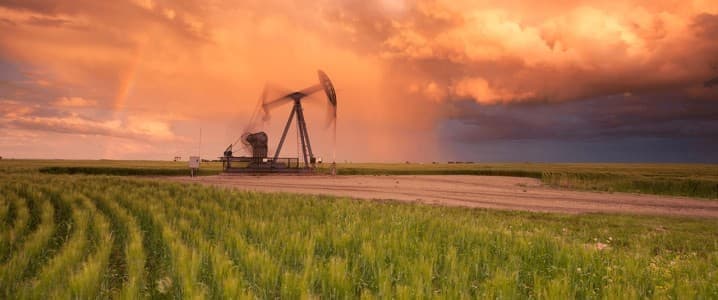
TotalEnergies has big plans for South African oil and gas despite increasing pressure from environmentalists to curb production. Following the recent go-ahead from the government to develop a new project in the country’s Orange Basin, it appears that Total has solidified its position in the upstream sector of South Africa’s oil industry following several months of uncertainty.
In October, the South African government approved TotalEnergies’ bid to drill test wells in the Orange Basin, which extends into Namibia, starting next year. The company is optimistic about its drilling operations, as billions of barrels of oil and trillions of cubic feet of gas have been discovered in the region over the last year and a half. The approval of the Deep-Water Orange Basin (DWOB) license followed a court decision on an appeal from a dozen individuals and lobby groups against the project going ahead on environmental grounds. Previously, TotalEnergies had been granted a license to drill up to five exploratory wells in its Block 5/6/7 in the frontier Cape basin offshore Cape Town.
TotalEnergies has been pursuing new projects in South Africa for several years, following its discovery of two giant gas fields off the country’s coast in 2019 and 2020. The area of interest in the DWOB spans 10,000 square kilometers, in water depths of between 700 and 3,200 meters. Total owns a 40 percent stake in the projects, collaborating with partners Shell and state-owned PetroSA, which hold 40 percent and 20 percent respectively.
Environmental activists are concerned about the effect the drilling will have on marine life in the region due to the loud noise involved with the activity, as well as the potential for oil spills. Several lobby groups said that the government failed to carry out adequate public consultation before approving the project.
South Africa’s environment minister Barbara Creecy stated of the approval, “I am therefore satisfied that the impacts of noise and light have been adequately assessed and mitigated to ensure low impacts on the receiving environment. As such this ground of appeal is dismissed.” However, environmental groups have already emphasized their intention to appeal the decision, claiming that the endorsement of the project goes against climate science at a time when many countries worldwide are striving to move away from new oil and gas projects and undergo a green transition.
A member of Extinction Rebellion 350 Africa, Glen Tyler-Davies, stated, “We are trying to power up climate justice and renewable energy. We have an amazing opportunity to not only avoid the impacts of climate change but also to power up community and social owned energy through renewable energy. Our parliamentarians need to seize this opportunity and stop the destruction.”
While TotalEnergies has big plans for its upstream business in South Africa, it is moving away from downstream activities. In December, TotalEnergies Marketing South Africa announced plans to divest its percent minority stake in National Petroleum Refiners of South Africa (Natref) to the Prax Group. Sasol Oil holds a 63.64 percent interest in the facility. The country’s Natref refinery has a processing capacity of 108,500 bpd of oil. Jean-Pierre Sbraire, CFO at TotalEnergies, explained “The transaction is in line with the company strategy to focus on its large integrated fuels and petrochemicals platforms and to divest its non-core assets.” The refinery is expected to continue running as normal under the ownership of Sasol and the Prax Group.
South Africa’s PetroSA is currently pursuing a gas supply agreement with TotalEnergies to connect the French major’s oilfield with PetroSA’s offshore platform. The 45,000 bpd Mossel Bay GTL plant, which is key to this connection, has been under renovation since 2020 owing to low domestic offshore gas production. PetroSA has been looking for investors in the plant to restore operations. The facility is connected to Mossel Bay via a pipeline, that could bring in gas supplies from TotalEnergies’ offshore operations. Although the first gas from TotalEnergies’ Luiperd discovery is not anticipated until the end of the decade.
This month, PetroSA chose Russia’s Gazprombank Africa as an investor in the refinery, with support from South Africa’s cabinet. The completion of the agreement is pending a final investment decision expected to be completed by Spring 2024. PetroSA sought legal advice to ensure that it was not breaking U.S. and European sanctions on Russian energy and firms by choosing to partner with Gazprombank. At present, the sanctions do not extend to South Africa, meaning the deal can go ahead without the worry of geopolitical repercussions.
TotalEnergies is taking positive strides in its South African upstream oil operations, despite ongoing pressure from environmental groups to curb its oil and gas production. However, it is reducing its presence in the country’s downstream operations in line with Total’s mid-term strategy. Meanwhile, PetroSA is rapidly working to get its Mossel Bay refinery up and running in time for TotalEnergies to supply it with gas from its recent offshore discovery, turning to Russia’s Gazprombank for investment.
Source:https://oilprice.com
